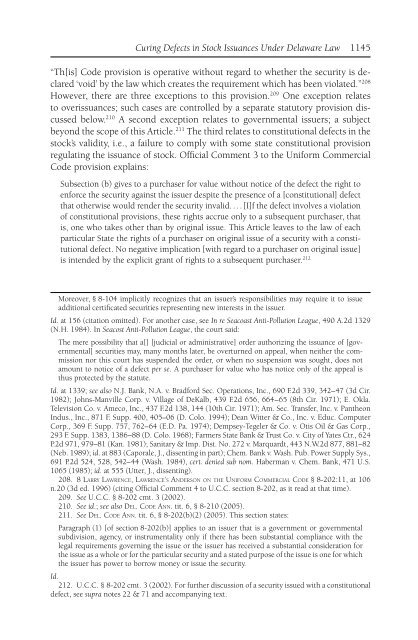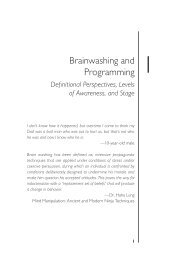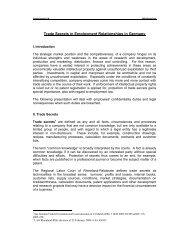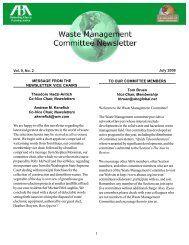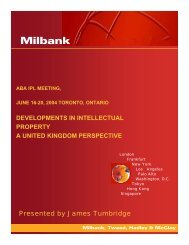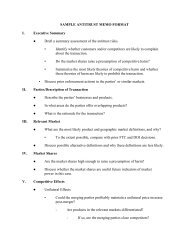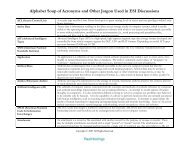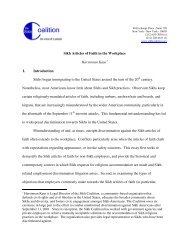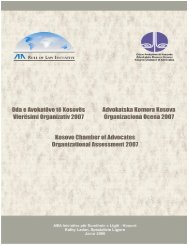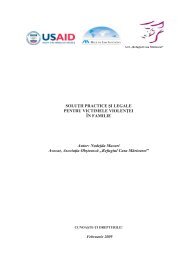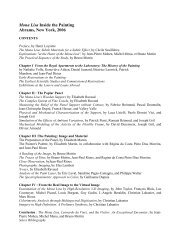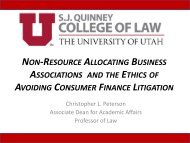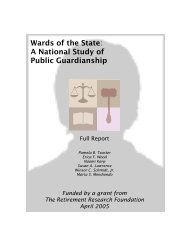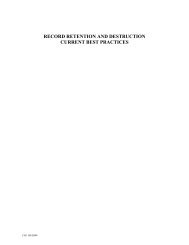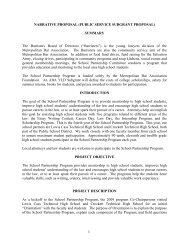Curing Defects in Stock Issuances - American Bar Association
Curing Defects in Stock Issuances - American Bar Association
Curing Defects in Stock Issuances - American Bar Association
Create successful ePaper yourself
Turn your PDF publications into a flip-book with our unique Google optimized e-Paper software.
<strong>Cur<strong>in</strong>g</strong> <strong>Defects</strong> <strong>in</strong> <strong>Stock</strong> <strong>Issuances</strong> Under Delaware Law 1145<br />
“Th[is] Code provision is operative without regard to whether the security is declared<br />
‘void’ by the law which creates the requirement which has been violated.” 208<br />
However, there are three exceptions to this provision. 209 One exception relates<br />
to overissuances; such cases are controlled by a separate statutory provision discussed<br />
below. 210 A second exception relates to governmental issuers; a subject<br />
beyond the scope of this Article. 211 The third relates to constitutional defects <strong>in</strong> the<br />
stock’s validity, i.e., a failure to comply with some state constitutional provision<br />
regulat<strong>in</strong>g the issuance of stock. Offi cial Comment 3 to the Uniform Commercial<br />
Code provision expla<strong>in</strong>s:<br />
Subsection (b) gives to a purchaser for value without notice of the defect the right to<br />
enforce the security aga<strong>in</strong>st the issuer despite the presence of a [constitutional] defect<br />
that otherwise would render the security <strong>in</strong>valid. . . . [I]f the defect <strong>in</strong>volves a violation<br />
of constitutional provisions, these rights accrue only to a subsequent purchaser, that<br />
is, one who takes other than by orig<strong>in</strong>al issue. This Article leaves to the law of each<br />
particular State the rights of a purchaser on orig<strong>in</strong>al issue of a security with a constitutional<br />
defect. No negative implication [with regard to a purchaser on orig<strong>in</strong>al issue]<br />
is <strong>in</strong>tended by the explicit grant of rights to a subsequent purchaser. 212<br />
Moreover, § 8-104 implicitly recognizes that an issuer’s responsibilities may require it to issue<br />
additional certifi cated securities represent<strong>in</strong>g new <strong>in</strong>terests <strong>in</strong> the issuer.<br />
Id. at 156 (citation omitted). For another case, see In re Seacoast Anti-Pollution League, 490 A.2d 1329<br />
(N.H. 1984). In Seacost Anti-Pollution League, the court said:<br />
The mere possibility that a[] [judicial or adm<strong>in</strong>istrative] order authoriz<strong>in</strong>g the issuance of [governmental]<br />
securities may, many months later, be overturned on appeal, when neither the commission<br />
nor this court has suspended the order, or when no suspension was sought, does not<br />
amount to notice of a defect per se. A purchaser for value who has notice only of the appeal is<br />
thus protected by the statute.<br />
Id. at 1339; see also N.J. Bank, N.A. v. Bradford Sec. Operations, Inc., 690 F.2d 339, 342– 47 (3d Cir.<br />
1982); Johns-Manville Corp. v. Village of DeKalb, 439 F.2d 656, 664 – 65 (8th Cir. 1971); E. Okla.<br />
Television Co. v. Ameco, Inc., 437 F.2d 138, 144 (10th Cir. 1971); Am. Sec. Transfer, Inc. v. Pantheon<br />
Indus., Inc., 871 F. Supp. 400, 405–06 (D. Colo. 1994); Dean Witter & Co., Inc. v. Educ. Computer<br />
Corp., 369 F. Supp. 757, 762– 64 (E.D. Pa. 1974); Dempsey-Tegeler & Co. v. Otis Oil & Gas Corp.,<br />
293 F. Supp. 1383, 1386 –88 (D. Colo. 1968); Farmers State Bank & Trust Co. v. City of Yates Ctr., 624<br />
P.2d 971, 979–81 (Kan. 1981); Sanitary & Imp. Dist. No. 272 v. Marquardt, 443 N.W.2d 877, 881–82<br />
(Neb. 1989); id. at 883 (Caporale, J., dissent<strong>in</strong>g <strong>in</strong> part); Chem. Bank v. Wash. Pub. Power Supply Sys.,<br />
691 P.2d 524, 528, 542– 44 (Wash. 1984), cert. denied sub nom. Haberman v. Chem. Bank, 471 U.S.<br />
1065 (1985); id. at 555 (Utter, J., dissent<strong>in</strong>g).<br />
208. 8 LARRY LAWRENCE, LAWRENCE’S ANDERSON ON THE UNIFORM COMMERCIAL CODE § 8-202:11, at 106<br />
n.20 (3d ed. 1996) (cit<strong>in</strong>g Offi cial Comment 4 to U.C.C. section 8-202, as it read at that time).<br />
209. See U.C.C. § 8-202 cmt. 3 (2002).<br />
210. See id.; see also DEL. CODE ANN. tit. 6, § 8-210 (2005).<br />
211. See DEL. CODE ANN. tit. 6, § 8-202(b)(2) (2005). This section states:<br />
Paragraph (1) [of section 8-202(b)] applies to an issuer that is a government or governmental<br />
subdivision, agency, or <strong>in</strong>strumentality only if there has been substantial compliance with the<br />
legal requirements govern<strong>in</strong>g the issue or the issuer has received a substantial consideration for<br />
the issue as a whole or for the particular security and a stated purpose of the issue is one for which<br />
the issuer has power to borrow money or issue the security.<br />
Id.<br />
212. U.C.C. § 8-202 cmt. 3 (2002). For further discussion of a security issued with a constitutional<br />
defect, see supra notes 22 & 71 and accompany<strong>in</strong>g text.


